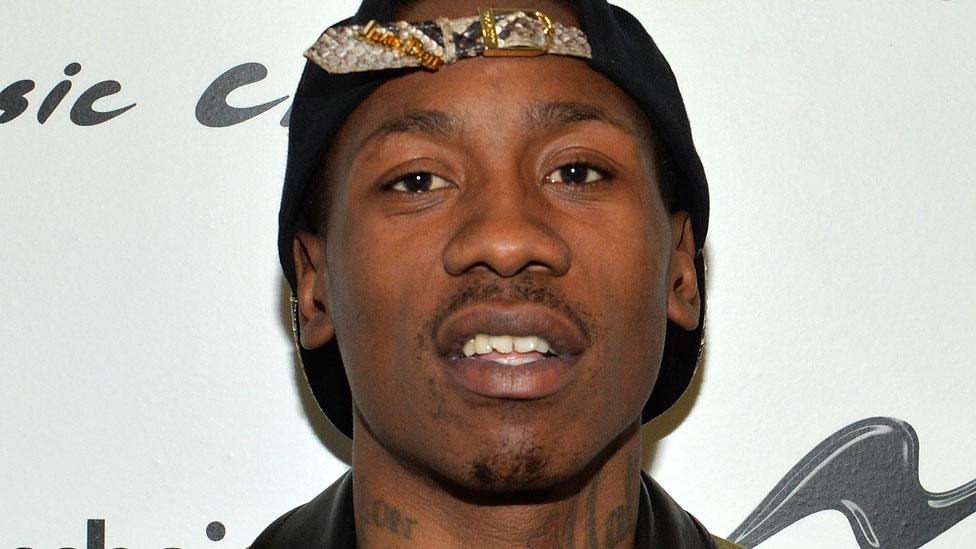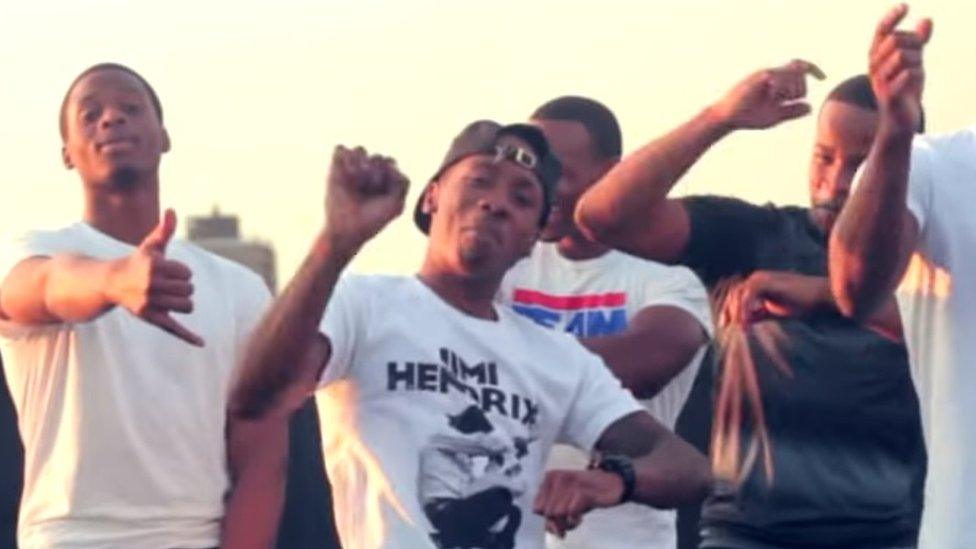Fortnite makers sued for 'stealing' Milly Rock dance move
- Published

2 Milly said Epic Games did not credit him or seek his consent
A US rapper has taken legal action against the creators of popular video game Fortnite, claiming it uses a dance move he created without his permission.
Rapper 2 Milly - aka Terrence Ferguson - says the Milly Rock dance he created in 2011 is recreated in Fortnite as an "emote" called Swipe It.
"Emotes" are upgrades players can buy to personalise their online avatars.
In a lawsuit filed on Wednesday, external 2 Milly accuses Fortnite developer Epic Games of "unauthorised misappropriation".

The dance featured in the rapper's 2014 Milly Rock video
He claims the company has "unfairly profited from exploiting [his] creative expression" and has "consistently sought to exploit African-American talent... by copying their dances and movements."
The suit follows numerous claims that Fortnite has replicated dance moves previously associated with stars like Snoop Dogg, Michael Jackson and others.
Earlier this year, Chance the Rapper called on the makers of the game to recompense "black creatives" by using "the actual rap songs behind the dances".
Allow X content?
This article contains content provided by X. We ask for your permission before anything is loaded, as they may be using cookies and other technologies. You may want to read X’s cookie policy, external and privacy policy, external before accepting. To view this content choose ‘accept and continue’.
Epic Games declined to comment on 2 Milly's legal action, which seeks unspecified damages and a restraining order.
US copyright law covers "choreographic works... fixed in some tangible medium of expression" but does not currently extend to individual dance steps.
"Individual movements or dance steps by themselves are not copyrightable... even if a routine is novel or distinctive," states the US Copyright Office in its official guidance material, external.

Follow us on Facebook, external, on Twitter @BBCNewsEnts, external, or on Instagram at bbcnewsents, external. If you have a story suggestion email entertainment.news@bbc.co.uk, external.
- Published6 December 2018

- Published1 November 2018
